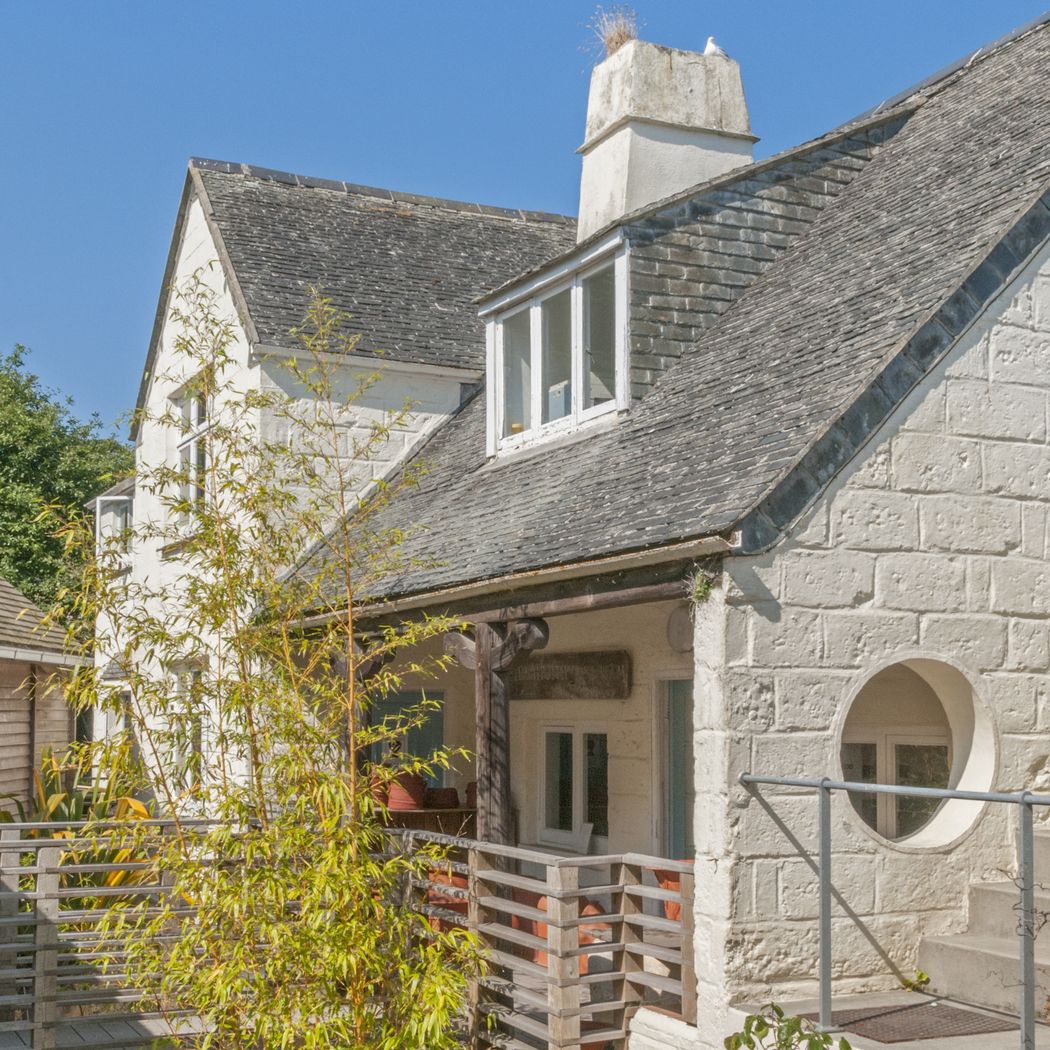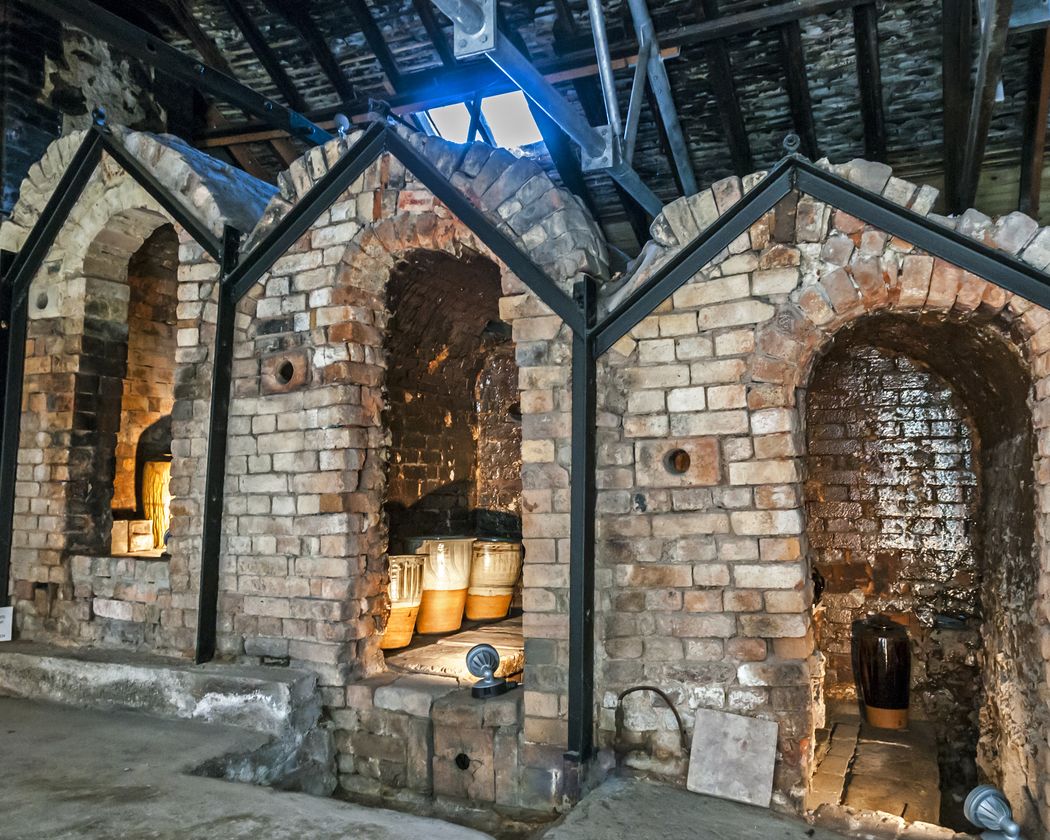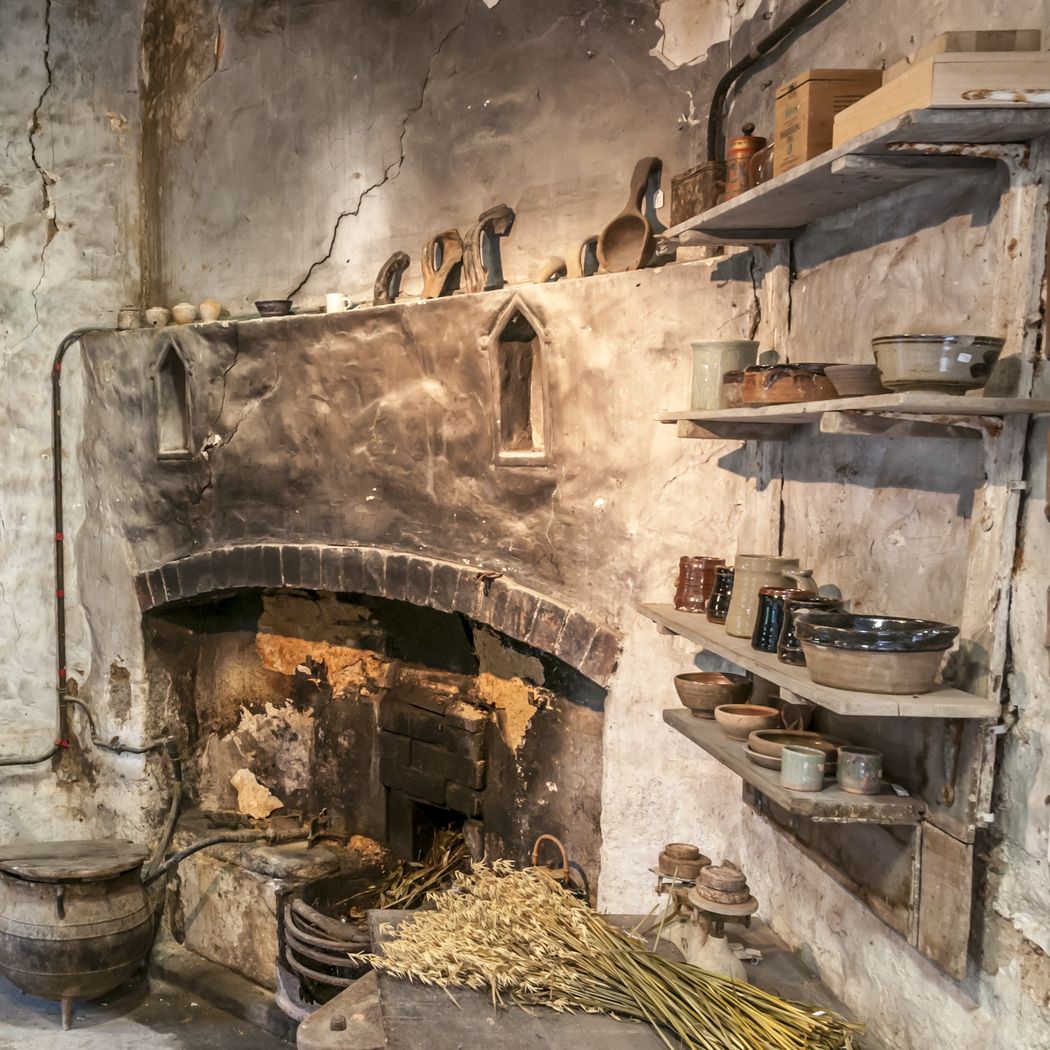“The studio museum experience is not based on lots of visitors, it is based on a kind of spiritual visitor journey”
An interview with Libby Buckley, Director of the Leach Pottery
Leach Pottery in St Ives was established by Bernard Leach (1887-1979) in the 1920s. Born in Hong Kong, Leach spent large parts of his life travelling in China and Japan, where he was first inspired to explore studio pottery by witnessing the high-temperature raku firing process. After establishing the pottery, Leach spent the next few decades experimenting relentlessly with new studio pottery methods, and fostering and collaborated with several generations of potters, including his third wife Janet Leach (1918-1997) and his lifelong creative partner Shoji Hamada (1894-1978). Today, Leach Pottery includes a preserved museum and an active pottery community. Here Artist's Studio Museum Network Co-ordinator Molly Skinner and Leach Pottery Museum Director Libby Buckley discuss what Covid-19 closures have been like for the museum including adapting work for the museum's centenary. Since this interview, the Leach Pottery Museum has been re-opened by guided tour and a limited number of courses have been able to resume, with social distancing measures in place.
_
Molly Skinner, ASMN Co-ordinator: What did the Leach Pottery have planned for 2020 pre-covid - could you give a picture of what the year was supposed to look like?
Libby Buckley, Director of Leach Pottery: For us it was meant to be an incredibly special year because it was our centenary. We had been working towards 2020 for several years. We fundraised and even put together a new team of staff to put on a whole programme of celebrations which were divided into three different themes: inspiring thinking, talent development and taking part. We had all sorts of exhibitions with us, nationally and around the world. We had residencies, commissioned artists, a conference and a range of community participation events including a National Raku Party.
All to celebrate the fact the Pottery was 100 years old and we had to cancel or postpone nearly all of it.
We were just getting going when we had to shut down - so yes, everything changed for us this year, we didn't really get to do at all what we'd planned.
M: That really leads into the next question about how the closures affected you, it sounds like you did have to postpone a lot of things
L: Initially we closed down completely and we had to postpone and dismantle many things. So the first event that we had to cancel was a symposium which we were doing with the Centre of Ceramic Art, York (CoCA). That was the first thing we put on hold and then we were shut from the beginning of lockdown until the beginning of June. We then started to gradually reopen, opening our online Shop and then the Studio with two potters to start with. Then we opened the Shop by appointment and we are gradually and carefully stepping our way back to being up and running.

M: Were you able to adapt any of your work during your closure, or was it more a case of putting everything on pause?
L: We did try to carry on with some of the things that were part of our centenary project; for example, we were doing a national Schools Design Challenge which we turned into a Schools & Home Challenge. We went live online with one of our exhibitions, 'Pottery and People', which was all about people's personal relationships with the pottery that they have in their homes and collecting people's stories. We will turn that into an on-site exhibition next year.
M: I was wondering if there were any changes you'd made during this time that you would consider keeping in place? I know that some of the museums we've been talking to have had to develop digital outreach that maybe wasn't there already and they're thinking about maintaining it. Or for you is it more of a case of trying to get back to everything you already had planned?
L: I think that there are some things that will definitely change, I wouldn't say that there are things we're doing already because of it. But I think because the world has changed so much we are looking at how we can develop our learning programme online. We are now considering remote throwing courses where we'll be trialling teaching remotely via video links. But we're going to be trialling that in the autumn.
_
“It was better to stop and focus on the things that we could control"
_
M: In your planning for reopening what do you think was your biggest challenge?
L: I think it's the planning itself that's been the hardest. It's not being able to plan. It has calmed down a lot now, although there may be a second wave later on and we may have to get through a very difficult winter. But at least we have plans that we can put in place.
It was early on in April and May that it was very difficult. Every time we looked at when we could reschedule the centenary projects new things would happen, the government would announce things weekly and then all the work that you've done you have to throw away and start again. That's why we postponed most of the centenary programme until next year because it became clear that actually we were trying to do things too quickly. It was better to stop and focus on the things that we could control.

M: Do you think being a studio museum has affected how you think about reopening and how you've had to adapt to this time?
L: I've been talking to lots of other museum directors and because our business model is based more on the activity that happens on site rather than the footfall - because the studio museum experience is not based on lots and lots of visitors, it is based on far less people having a kind of spiritual visit or journey - in some ways closures have had less impact on the Museum.
Perhaps if we were a much bigger museum that relied on thousands of visitors it might have affected us in a different way. The Museum is also the last thing that we're going to reopen - with the original pottery Studio the last bit to go back “online” as it were. We are going to be doing that in September and October and we will probably close again over the winter and spend the time trying to provide an online offer for there. We're looking at doing a virtual tour and putting more content online to expand access. So I think it has safe guarded us in a way as it's not the biggest part of our business model.
M: Do you think your museum experience, your whole site experience, is going to be changed after this? What do you think that will look like for you?
_
"Probably for some people it will be an improved experience ... but for others it will be more interaction than they would have wanted"
_
L: I think in the short term it will definitely be different. When we reopen we're going to have reduced number of days and we're going to be doing guided tours. Although we did do guided tours before they were optional and something only a few people did whereas now it's going to be pre-booked and everyone will be on a tour to help manage people on site. There will be far less people, so I think it will change the experience. Probably for some people it will be an improved experience because they will get more of a personal experience but for others it will be more interaction than they would have wanted. So it's definitely going to have an impact.

M: looking at the next year ahead then, I was wondering what you were most excited about? Obviously you've rescheduled a lot of your centenary celebrations - do you think those will be coming in force in 2021?
L: We are hoping to do as much of it as we can manage. I think there will probably be some things that we won't be able to do as part of that great big programme - a few of the bits will probably get lost along the way. But we hope to be able to do a huge amount of that.
I'm really looking forward to having staff and the public back on site. Although we currently have the Shop open, we don't currently have people learning on site and being creative. While we have potters being creative in the background, what's really nice is when we have residencies and people coming from all over the world to train with us. To get that life back is something that everyone's looking forward to.
M: I think even from a staff perspective, the idea of being back in the office with people is something that we're all missing at the minute.
_
“Our income stream stopped overnight - 92% of our income is generated by ourselves and that was switched off almost immediately"
_
L: Although some people really like being at home, I'm probably going to struggle to get everyone back!
For us I feel very lucky that we are an Arts Council NPO and we were able to apply for emergency funding from them - so that certainly gave us a short term solution. Our income stream stopped overnight - 92% of our income is generated by ourselves and that was switched off almost immediately and then we had to refund everyone on courses, so that fund has been a real lifeline. We just have to see how we can get through the winter really. It's going to be a challenge - I think we'll all have to start working differently. That's not a bad thing, we just need to work out how we can make the best of it and what we can do to challenge ourselves.
Since this interview, the Leach Pottery Museum has been re-opened by guided tour and a limited number of courses have been able to resume, with social distancing measures in place.
Libby Buckley has been the Director of the Leach Pottery since 2015. Previously, Buckley was the Director of the Telegraph Museum Porthcurno.
